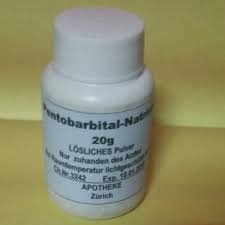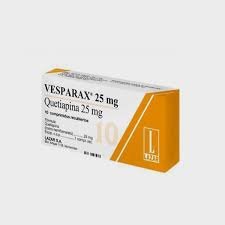Introduction to Nembutal Powder
Nembutal powder is a type of barbiturate, a class of drugs known for their sedative and depressant properties. Barbiturates operate by depressing the central nervous system (CNS), resulting in a range of effects from mild sedation to total anesthesia. Nembutal powder is the powdered form of pentobarbital sodium, a compound that has been utilized in various medical applications due to its strong sedative effects.
Pentobarbital sodium, the active ingredient in Nembutal powder, was first synthesized in the early 20th century. Since its development, it has been used in a variety of clinical settings, owing to its efficacy in inducing sleep and managing seizures. Historically, barbiturates like Nembutal powder played a significant role in the treatment of anxiety, insomnia, and seizure disorders before the advent of newer classes of medications, such as benzodiazepines.
In medical practice, Nembutal powder is primarily administered for its powerful sedative and hypnotic effects. It is often utilized in the management of severe insomnia that has not responded to other treatments. Additionally, it can be used to induce preoperative sedation in surgical patients, ensuring they remain calm and relaxed before undergoing anesthesia. Furthermore, in certain veterinary applications, Nembutal powder is used for anesthesia and euthanasia of animals due to its reliability and fast-acting nature.
Despite its beneficial uses, Nembutal powder must be employed with caution, as it carries a high potential for dependence and abuse. Its potent effects necessitate strict regulation and control. Thus, understanding the nature, historical significance, and primary functions of Nembutal powder is essential for assessing its applications and ensuring its responsible use within appropriate medical contexts.
Medical Uses and Applications
Nembutal powder, a barbiturate, is primarily prescribed for the short-term treatment of insomnia. In cases where individuals struggle with severe sleep disorders, Nembutal powder can offer significant relief by inducing a state of calmness and facilitating the onset of sleep. The typical dosages prescribed for insomnia treatment vary depending on the severity of the condition, but generally range from 100 to 200 mg taken at bedtime. It’s crucial to adhere to the prescribed amount to avoid dependency and potential adverse effects, as barbiturates are known for their high dependency risk.
The short duration of use is emphasized in medical guidelines, typically recommending no more than two weeks of treatment. This restriction helps to mitigate the risk of developing tolerance, addiction, or adverse effects associated with prolonged use. Nembutal powder operates by depressing the central nervous system, which not only aids in sleep induction but also contributes to its calming effects, proving beneficial for individuals with anxiety-induced sleep disturbances.
Apart from its primary use in managing insomnia, Nembutal powder has various other medical applications. One notable use is as a pre-anesthetic sedative. Administered before surgery, it helps to relax the patient and alleviate anxiety, creating optimal conditions for the administration of general anesthesia. Typically given in smaller doses ranging from 100 to 150 mg, it assists in achieving the desired sedative effect without compromising the patient’s safety.
Nembutal powder also has emergent applications in the field of neurology. In urgent situations, such as controlling acute seizures or status epilepticus, it can be administered intravenously. Effective in stabilizing neural activity, it offers rapid seizure control, providing critical intervention while other treatments are instituted. The dosage in these situations is carefully monitored and administered by healthcare professionals to ensure efficacy and mitigate risk.
While Nembutal powder offers significant therapeutic benefits, it demands careful administration and adherence to medical guidance to ensure safety and effectiveness. Its potential for misuse necessitates regulated and supervised use, underscoring the importance of professional oversight in its application.
Effects and Mechanism of Action
Nembutal powder, known scientifically as pentobarbital sodium, exerts its primary effects by acting on the central nervous system (CNS). As a barbiturate, it functions by enhancing the action of the inhibitory neurotransmitter gamma-aminobutyric acid (GABA). When GABA binds to its receptor, it opens chloride channels in the neuron, making it less likely to fire. Nembutal amplifies this effect, leading to pronounced CNS depression. This action manifests as sedation, hypnosis, and in higher doses, anesthesia.
Physiologically, the calming and sedative effects of Nembutal powder become apparent within minutes of administration. The user may experience drowsiness, reduced anxiety, and muscle relaxation. In medical settings, these properties make Nembutal an effective agent for managing severe anxiety, insomnia, and seizure disorders. It is also employed in euthanasia and assisted suicide practices due to its potency in inducing a peaceful cessation of life.
However, the use of Nembutal powder is not without risks. Physical dependency can develop quickly, leading to a tolerance that necessitates higher dosages to achieve the same sedative effects. This escalating dosage pattern significantly raises the likelihood of overdose, a condition marked by severe respiratory depression, hypotension, hypothermia, and potentially fatal outcomes without immediate medical intervention. Psychological dependence is equally concerning, as individuals may come to rely heavily on the drug for stress alleviation or sleep induction, often neglecting alternative, safer therapies.
The side effects of Nembutal powder use are varied. Short-term effects include dizziness, nausea, sluggishness, and impaired motor coordination. Long-term use can cause more severe repercussions such as chronic sleep disturbances, cognitive impairments, and mood alterations. In extreme cases, abrupt discontinuation after prolonged use may precipitate withdrawal symptoms like agitation, hallucinations, and seizures, necessitating a gradual taper under medical supervision.
Therefore, while Nembutal powder may offer immediate relief in specific medical conditions, the associated risks mandate cautious administration and vigilant monitoring by healthcare professionals to mitigate potential adverse outcomes.
Safety, Risks, and Regulations
Nembutal powder, a barbiturate, is governed by strict regulations due to its potent effects and potential for misuse. In most countries, it is classified as a controlled substance, necessitating a prescription from a licensed medical professional. Prescribing Nembutal is tightly regulated, often limited to specific medical conditions such as severe insomnia, preoperative anxiety, or certain types of seizures. Unauthorized distribution or possession of Nembutal without a prescription can lead to significant legal penalties, including fines and imprisonment.
The risks associated with Nembutal powder are substantial, primarily due to its high potential for dependency and abuse. Prolonged use can result in physical dependence, necessitating progressively higher doses to achieve the desired effects, and psychological addiction. Misuse can lead to severe health complications, including respiratory depression, coma, and even death. Safety guidelines emphasize the importance of adhering to the prescribed dosage and frequency to mitigate these risks.
Understanding the signs of Nembutal abuse is critical for early intervention. Symptoms may include unusual drowsiness, confusion, frequent mood swings, and social withdrawal. If you suspect someone is misusing Nembutal powder, it is essential to seek professional help immediately. Medical professionals can offer detoxification services and support through comprehensive treatment programs designed to address addiction.
Furthermore, safety regulations include measures to prevent unauthorized access, particularly for vulnerable populations like children or individuals with a history of substance abuse. Secure storage practices are vital, such as keeping Nembutal powder in a locked cabinet and disposing of any unused medication appropriately.
In case of suspected overdose, immediate medical attention is paramount. Symptoms of overdose may include severe confusion, extreme drowsiness, respiratory depression, and loss of consciousness. Calling emergency services and providing them with all relevant information—such as the amount taken and the time of ingestion—can be life-saving.
Overall, while Nembutal powder serves important medical purposes, its use must be carefully moderated and closely monitored. Following strict regulatory guidelines and being vigilant about the potential for misuse can significantly enhance safety and mitigate the associated risks.






Reviews
There are no reviews yet.